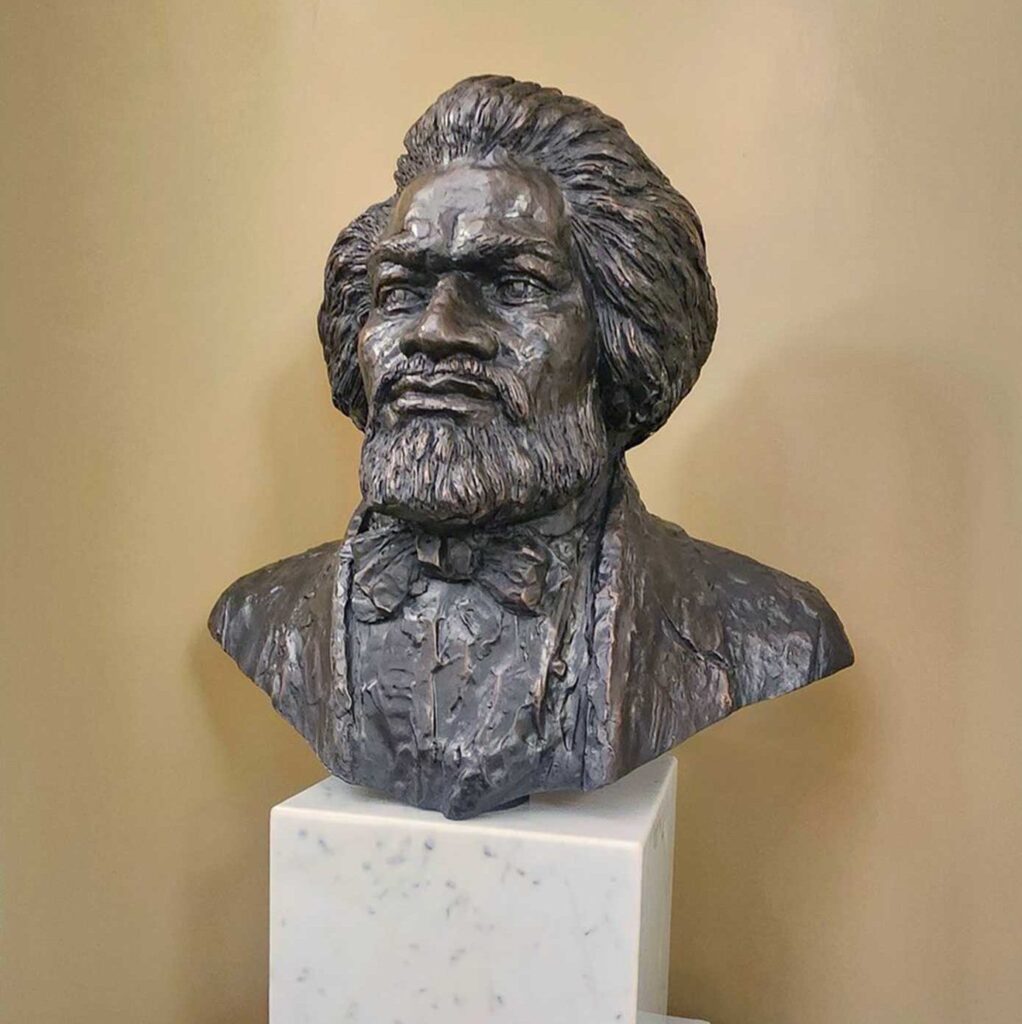
The Massachusetts State Senate has added a bust of abolitionist activist Frederick Douglass to its chamber on Beacon Hill. It’s the Senate’s first state-commissioned bust of an African American. Officials unveiled it on Feb. 14, which is widely considered to be Douglass’ birthday.
“We are proud to honor a man who left an indelible mark on our Commonwealth and nation. Frederick Douglass takes his rightful place as a founding father,” said Senate President Karen Spilka of Ashland.
Commissioned last year by the State House Art Commission, the Douglass bust copies a sculpture by the late art professor and sculptor Lloyd Lillie, who died in 2020. Lillie produced the original Douglass sculpture for a Seneca Falls museum. A replica now graces the Senate chamber as part of Spilka’s efforts to diversify the State House’s art collection.
The Douglass bust is the first to be added to the Senate chamber’s permanent collection since 1898. It now sits in an alcove in the chamber, near a space adorned with his quote, “Truth, justice, liberty, and humanity will ultimately prevail.”
Frederick Augustus Washington Bailey was born in Maryland sometime in February 1818. Like most enslaved people, Douglass likely did not know his actual date of birth. Douglass made metro Boston his home after escaping slavery, living in New Bedford for a time and raising his family in Lynn.
L’Merchie Frazier, a member of the State House Art Commission, said that his growth as an activist started here.
“Aside from the fact that he was self-taught, when asked [about] his education, he replied ‘I owe my education to the Massachusetts school of abolition,’” she said.
During his life in the area, Douglass visited Beacon Hill as an advocate for civil rights. Douglass was reportedly only 400 yards down the street from the State House when he heard about Abraham Lincoln’s Emancipation Proclamation. Today, just over 160 years later, the bust of his likeness has been unveiled in the very chamber where he once stood before the state’s legislators to make appeals for his community.
In 2019, with renovations underway, the Senate room was under construction. Workers had to temporarily remove the chamber’s collection of busts, including those of George Washington, Benjamin Franklin and Abraham Lincoln.
“The walls of this building honor people who are predominantly white, leaving out the stories of countless men and women of color who have led movements,” said Spilka.
She vowed to add a bust of a woman and a person of color to the sculpture collection after completion of the renovations.
To that end, the bust of Douglass fills one of two empty spaces in the Senate chamber. The other empty pedestal is reportedly intended for a woman leader.
Noelle Trent, president of Boston’s Museum of African American History, attended the Feb. 14 unveiling.
“It is fitting that this unveiling takes place today, in a city with a woman mayor in a state with a woman governor and a woman lieutenant governor and a woman as president of the Senate,” Trent said.






